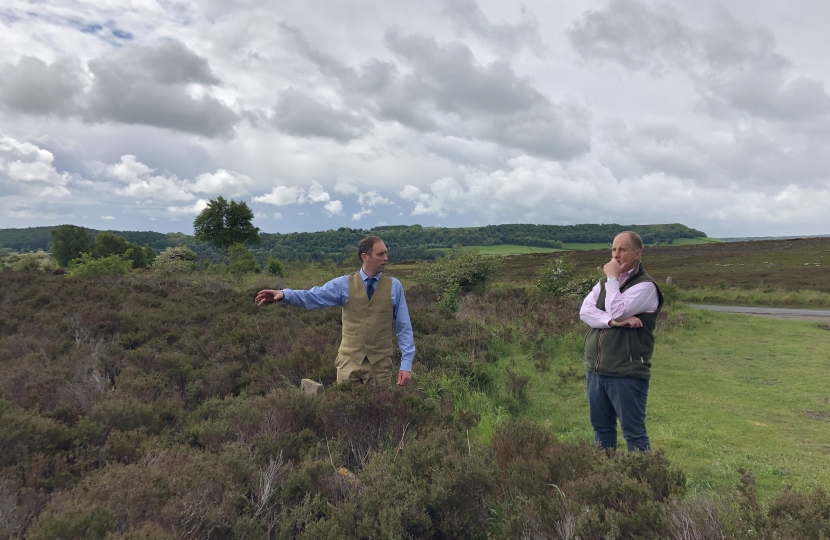
We need a much better understanding of the way we look after our countryside in the wake of a legal challenge by green lobbyists which resulted in restrictions on the control of certain bird species, such as crows and rooks, which cause serious damage to livestock, for instance new born lambs, and the chicks of ground nesting birds such as curlews and lapwings.
I was delighted to have had the opportunity to visit Bransdale and Pennyholme Estate on the North York Moors. The gamekeepers and estate owners do a fantastic job, balancing the economic contribution of a large sporting estate with a passionate commitment to wildlife and biodiversity. The Pennyholme Estate attracts visitors from around the country and around the world for grouse shooting but also walkers and conservationists. On my visit we counted over twenty different bird species including Curlew, Golden Plovers and Snipe. The estate supports hundreds of local jobs directly and many more in the local hospitality industry, small retail business and local pubs, many of whom would not survive without the shoots. They also ensure that the stunning habitat is preserved for a range of bird species. The hard work and investment ranges from managing the heather to protecting the birds and is the reason that we can all enjoy birdwatching or the huge flora and fauna mix in our magnificent moorlands. It’s important to remember that the countryside will not stay like this if it’s left to look after itself and so we have to strike the right balance between intervention and nature.
I totally understand the Estate’s concerns after Natural England revoked three of its general licences in April to control sixteen species of wild bird because they did not comply with the Wildlife and Countryside Act after it was challenged in the courts by broadcaster and wildlife campaigner, Chris Packham. These licences had permitted farmers to “to prevent serious damage or disease”, “to preserve public health” and “to conserve wild birds or flora or fauna”. Without these licences farmers are not able to prevent the devastating impact crows and rooks have on lambs, piglets, domestic poultry, gamebirds, wildlife and wildfowl.
Within a week Natural England issued new temporary general licences to control carrion crows, Canada geese and woodpigeons. However, Bransdale moorland gamekeeper, Charles Woof, said “Unfortunately the grouse moor I work on is entirely in a Site of Special Scientific Interest (SSSI) so with the terms on the new licences we are still unable to do any carrion crow or other corvid control which is nothing short of a disaster at this time of year. The hill farms are all lambing, the red listed species that are only breeding successfully on grouse moors due to effective predator control have been put under increased pressure to survive, not to mention the damage to grouse eggs and shortly chicks which will impact on the local economy and employment massively”.
I am now working closely with the Secretary of State, Michael Gove MP. The issuing of new long term licences has been brought in-house by DEFRA and I expect the new system to be rolled out very soon.

